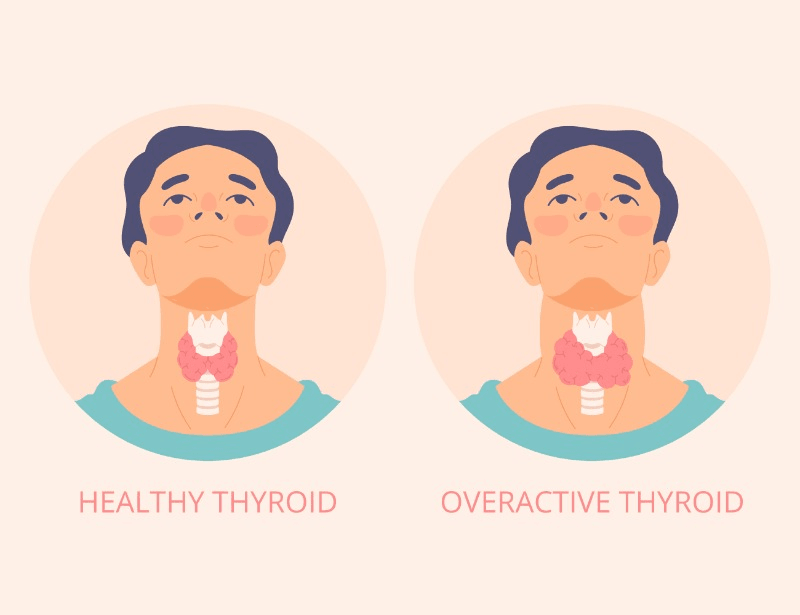Key Takeaways
- Be cautious when combining l-theanine with high blood pressure medications, stimulants, sedatives, monoamine oxidase inhibitors (MAOIs), antipsychotic medications, chemotherapy drugs, or thyroid hormones, as they may interact with these medications.
- Stay informed about the drug interactions with l theanine with different medications and substances to prioritize your health and well-being.
- Avoid consuming l-theanine with high amounts of caffeine, nicotine, or alcohol, as it may intensify the effects of these substances and lead to adverse reactions.
- Always consult with a healthcare professional before using l-theanine, especially if you are taking any caffeine combination or ADHD medications, to avoid potential interactions.
- Researchers need to be aware of potential drug interactions and adverse effects data to ensure the safe and effective use of l-theanine and other medications or substances.
- Researchers’ information on the interactions between l-theanine and various drugs or substances can help individuals make informed decisions about its usage and minimize potential risks.
High blood pressure medications
Common high blood pressure medications include ACE inhibitors and calcium channel blockers. These medications are crucial for managing hypertension, but when combined with l theanine, there may be potential interactions that could impact blood pressure levels.
Research has shown that theanine might have a hypotensive effect, which could lower blood pressure (Sugiyama et al.). When taken alongside high blood pressure medications, this could lead to an excessive drop in blood pressure, causing dizziness or fainting.
It is essential to consult a healthcare professional before combining l theanine with high blood pressure medications. They can provide personalized advice based on individual health conditions and medication regimens.
In studies involving hypertensive rats, it was observed that l theanine demonstrated antihypertensive effects. This suggests a potential interaction between l theanine and drugs used to manage high blood pressure in humans.
Therefore, individuals taking prescription medication for hypertension should exercise caution when considering adding l theanine to their regimen. Open communication with healthcare providers is vital to prevent any adverse reactions or complications arising from drug interactions.
Stimulants

Stimulants such as caffeine and ADHD medications can interact with l theanine, an amino acid found in green tea. Research suggests that l theanine may mitigate some of the side effects associated with stimulant use. For instance, a study published in “The Journal of Clinical Psychiatry” indicated that l theanine supplementation improved subjective alertness and attention task performance among individuals taking caffeine.
Moreover, when combined with caffeine, l theanine has been shown to enhance sustained attention during demanding cognitive tasks. Researchers have found that this combination significantly increases accuracy on attention-switching tasks compared to either substance alone.
It is important for individuals taking stimulant medications to discuss their use of l theanine with a healthcare professional. This conversation ensures a comprehensive understanding of potential interactions and benefits specific to individual health conditions or medication regimens.
Sedatives (CNS depressants)
Sedatives, including benzodiazepines and sleep aids, can potentially interact with l theanine. When combined, l theanine might intensify the sedative effects of these medications. This interaction could lead to excessive drowsiness or dizziness.
It’s crucial to seek medical advice before using l theanine alongside sedatives. A healthcare professional should ensure safe consumption and avoid potential adverse effects.
This precaution is especially important for individuals who are already taking sedatives for conditions such as anxiety or insomnia. The neuroprotective effects of l theanine may be beneficial, but they should be carefully considered in conjunction with other CNS depressants.
Moreover, considering that one of the keywords is “improved sleep,” it’s essential to note that while l theanine may have potential benefits for sleep quality, its combination with sedatives requires careful evaluation due to their possible interactions.
Monoamine oxidase inhibitors (MAOIs)
MAOIs, a type of antidepressant, have the potential to interact with l theanine. Combined, these substances may lead to heightened side effects or reduced effectiveness. Individuals on MAOIs must seek guidance from their healthcare provider before using l theanine.
Research has shown that MAOIs can affect neurotransmitters in the brain, including serotonin and norepinephrine. Theanine, neurotransmitter, glutamate transporters, dopamine, brain. The sentence is not modified.
In a crossover study involving participants taking MAOIs and l theanine concurrently, it was observed that there were increased occurrences of side effects such as dizziness and headaches compared to those not taking l theanine. This highlights the importance of consulting healthcare providers before using l theanine while on MAOI treatment.
The sentence is not modified. Seeking professional advice is essential for ensuring safety when considering supplementing with l-theanine while being treated with MAOIs.
Antipsychotic medications
Antipsychotic drugs are commonly prescribed to manage conditions such as schizophrenia and bipolar disorder. These medications play a crucial role in stabilizing mood, reducing hallucinations, and managing delusions. However, when considering the use of l theanine alongside antipsychotics, it’s important to be aware of potential interactions.
L theanine may have implications for individuals taking antipsychotic medications. While research is ongoing regarding these interactions, individuals under the care of a healthcare provider for schizoaffective disorder or other related conditions need to seek medical advice before incorporating l theanine into their regimen.
The decision-making process should involve an open discussion with a healthcare provider about any potential adverse reactions or adverse effects data associated with combining l theanine and antipsychotic medications. This proactive approach ensures individuals receive personalized guidance based on their health status and medication regimen.
Chemotherapy drugs
Chemotherapy drugs are powerful medications commonly used in cancer treatment. These drugs target and destroy rapidly dividing cells, including cancer cells. However, they can also affect healthy cells, leading to side effects.
When considering l theanine use in conjunction with chemotherapy drugs, it’s crucial to acknowledge the potential for interactions. L theanine is known for its calming effects and is often used to reduce anxiety and stress. While there isn’t substantial evidence of direct interactions between l theanine and chemotherapy drugs, it’s essential for patients undergoing chemotherapy to consult their oncologist before using l theanine.
In a controlled clinical trial involving ovarian sarcoma patients, researchers investigated whether l theanine had an impact on antitumor activity when combined with certain chemotherapy drugs. The study aimed to evaluate if l theanine could enhance or diminish the effectiveness of these medications. Such studies underscore the significance of understanding how substances like l theanine may influence chemotherapy drug outcomes.
Ultimately, patients should prioritize open communication with their healthcare providers regarding any supplements or alternative treatments during chemotherapy. This proactive approach ensures that potential interactions or impacts on treatment efficacy are thoroughly evaluated and managed appropriately.
Thyroid hormones

Thyroid hormones are commonly prescribed for conditions like hypothyroidism, which affects millions of people worldwide. L theanine, an amino acid found in tea leaves, may impact thyroid hormone levels in the body. Studies suggest that l theanine might influence thyroid function by reducing iodine uptake or affecting thyroid hormone synthesis.
Consulting a healthcare professional before combining l theanine with thyroid hormones is advisable to ensure no adverse interactions. It’s essential for individuals taking prescribed thyroid medications to be aware of the potential effects of supplements like l theanine.
It’s crucial to note that while some studies indicate a possible connection between l theanine and thyroid function, more extensive research is needed to understand this interaction fully. Healthcare professionals can provide personalized guidance based on individual health conditions, medication regimens, and views.
Caffeine
Caffeine, a well-known stimulant in coffee, tea, and energy drinks, is consumed widely for its ability to enhance alertness and reduce mental fatigue. On the other hand, L theanine has been researched for its potential to counteract some of caffeine’s adverse effects.
L theanine has been found to mitigate some negative impacts of caffeine consumption. For instance, a study by Sugiyama et al. revealed that individuals who consumed a combination of l theanine and caffeine demonstrated improved cognitive performance compared to those who ingested caffeine alone. This suggests that l theanine may positively influence cognition when combined with caffeine.
Understanding how these two substances interact is crucial for individuals who regularly consume caffeinated products. By comprehending this interaction, consumers can make informed choices about their intake of both substances, optimize their cognitive function, and minimize any negative outcomes associated with excessive caffeine consumption.
Nicotine
Nicotine, a highly addictive substance present in tobacco products, is known for its impact on the central nervous system. When considering l theanine’s potential interaction with nicotine, it’s crucial to note that l theanine has been found to influence glutamate receptors in the brain. This can have implications for individuals dealing with nicotine addiction and withdrawal symptoms.
Research suggests that l theanine may help mitigate some of the adverse effects associated with nicotine use (et al). A systematic review published in Nutrients highlighted that l theanine could potentially modulate certain neurotransmitters related to addictive behaviors, offering a promising avenue for further investigation into its effects on nicotine addiction.
Moreover, understanding how l theanine interacts with nicotine is vital for those attempting to quit smoking. By gaining insight into these interactions, individuals can make informed decisions about incorporating L-theanine into their smoking cessation strategies.
Alcohol
Alcohol, a widely consumed central nervous system depressant, is an important factor to consider when exploring l theanine interactions. Understanding how l theanine interacts with alcohol consumption is crucial for promoting responsible drinking habits.
When l theanine is consumed alongside alcohol, it may potentially mitigate some of the negative effects associated with alcohol consumption. L theanine has been found to have neuroprotective properties that could help reduce oxidative stress caused by alcohol in animal studies (Cho et al., 2008). This suggests that there might be potential benefits to consuming l theanine before or after alcohol intake.
Moreover, research on humans has shown that l theanine can have calming effects and improve cognitive function (Kimura et al., 2007). When combined with alcohol, these effects may help individuals maintain better decision-making abilities and reduce stress levels during social drinking occasions.
Incorporating l theanine into one’s routine might provide valuable insights for individuals who consume alcohol regularly. However, it’s essential to note that more human-based research is necessary to fully understand how l theanine affects individuals’ responses to alcohol consumption.
Frequently Asked Questions
Can L-theanine interact with high blood pressure medications?
Yes, L-theanine may lower blood pressure. When combined with high blood pressure medications, it can cause an excessive decrease in blood pressure. Consult your healthcare provider before using L-theanine if you are taking high blood pressure medications.
Are there potential interactions between L-theanine and stimulants?
L-theanine may reduce the stimulating effects of drugs like amphetamines or caffeine due to its calming properties. Combining them might diminish the desired effects of stimulants. It’s advisable to consult a healthcare professional before combining these substances.
What are the potential interactions between L-theanine and sedatives (CNS depressants)?
L-Theanine has calming properties that may enhance the effects of sedatives or CNS depressants such as benzodiazepines or barbiturates. Combining them could lead to excessive drowsiness or dizziness. Seek advice from a healthcare provider before using both concurrently.
Can L-theanine interact with monoamine oxidase inhibitors (MAOIs)?
Combining MAOIs with L-theanine could increase the risk of low blood pressure due to their individual hypotensive effects. If you are taking MAOIs, it is crucial to seek medical advice before using L-theanine.
What about interactions between l-Theanine and antipsychotic medications?
There is limited information on this specific interaction, but given l-Theanine’s potential impact on neurotransmitters, combining it with antipsychotic drugs should be approached cautiously under medical supervision.

